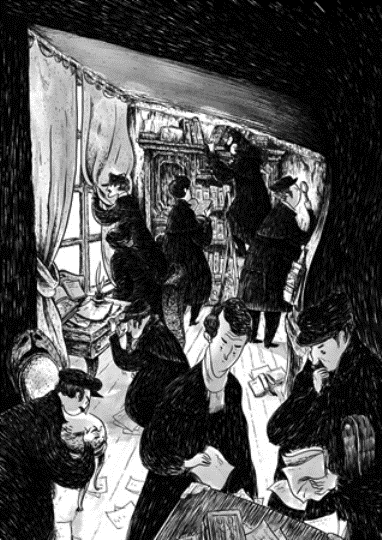Thursday
One of the most remarkable things about Donald Trump’s love affair with Vladimir Putin is how open it all has been. Granted, we don’t know the whole reason why Trump has been so accommodating. Like many people, I think there are shady money deals, which Putin knows about and Trump knows that he knows. The potential for blackmail seems substantial.
But in such situations one doesn’t usually pay off the blackmailer in public. One doesn’t ignore the entire GOP platform at convention time except for its Ukraine plank, which you rewrite in Russia’s favor. You don’t name your major Russia contact as head of the National Security Administration. You don’t offer to return Russia’s compound, seized by the U.S. to punish Russia for its election intervention, right after taking office. You don’t openly talk about lifting the oil sanctions against Russia (put in place because of the Ukraine invasion) and then choose an oil executive and opponent of the sanctions as your Secretary of State. You don’t fire the head of the FBI when he refuses to drop the Russia investigation and then openly admit that this is why you fired him. You don’t (this is the latest) spend over an hour speaking privately with Putin—no American witnesses—and take minimal efforts to hide the encounter. Every time something like this happens, commentators are both appalled and incredulous—appalled that Trump is doing it, incredulous that he’s doing it in the open.
And yet, so far, Trump seems to have gotten away with it. Maybe that’s because being brazen has always worked for him so he just keeps doing it. Why abandon your running game if it gets you 10 yards every time? Or maybe he’s learned a lesson from Edgar Allan Poe’s “The Purloined Letter.”
Poe’s story involves a compromising letter that has been stolen by D–. The police know that the letter must be in D—‘s possession and ransack both the man and his apartment with the utmost care. In fact, they boast of their thoroughness to Dupin, the private eye who has been brought in on the case. Here’s the Prefect of Police:
“Why the fact is, we took our time, and we searched every where. I have had long experience in these affairs. I took the entire building, room by room; devoting the nights of a whole week to each. We examined, first, the furniture of each apartment. We opened every possible drawer; and I presume you know that, to a properly trained police agent, such a thing as a secret drawer is impossible. Any man is a dolt who permits a ‘secret’ drawer to escape him in a search of this kind. The thing is so plain. There is a certain amount of bulk –of space –to be accounted for in every cabinet. Then we have accurate rules. The fiftieth part of a line could not escape us. After the cabinets we took the chairs. The cushions we probed with the fine long needles you have seen me employ. From the tables we removed the tops.”
“Why so?”
“Sometimes the top of a table, or other similarly arranged piece of furniture, is removed by the person wishing to conceal an article; then the leg is excavated, the article deposited within the cavity, and the top replaced. The bottoms and tops of bedposts are employed in the same way.”
And:
“[W]e opened every package and parcel; we not only opened every book, but we turned over every leaf in each volume, not contenting ourselves with a mere shake, according to the fashion of some of our police officers. We also measured the thickness of every book-cover, with the most accurate admeasurement, and applied to each the most jealous scrutiny of the microscope. Had any of the bindings been recently meddled with, it would have been utterly impossible that the fact should have escaped observation. Some five or six volumes, just from the hands of the binder, we carefully probed, longitudinally, with the needles.”
The letter, however, proves to be in plain sight: Dupin finds it, its exterior slightly altered, deposited in D–‘s letter rack.
D—has figured that the police will expect subtlety from him and so crosses them up with brazenness. To draw the parallel, it’s as though Trump figures that every scandal in the past (Watergate, Iran Contra, Monica Lewinsky) has been uncovered because of elaborate attempts to hide the evidence. So why not be open about it.
The press has certainly been like the police force in the story, tracking down every small lead and uncovering one thing after another. They even have a confession from the president’s son that he had a meeting with money launderers and Russian lawyers during the election. Drawing on the past, we anticipate that every new scandal will bring our D– down. Yet he continues to thumb his nose at us.
For the good of the country, not to mention truth and justice, we can only pray that we have our own Dupin in Special Counsel Robert Mueller. Trump may not be “an unprincipled man of genius,” as Dupin calls D–, but handling this scandal in the old way doesn’t look as though it will work.
Perhaps Mueller should take his cue from Dupin, who turns the tables in such a subtle way that D—doesn’t realize that he’s lost. By the time he is aware, Dupin predicts, he will have entrapped himself.
